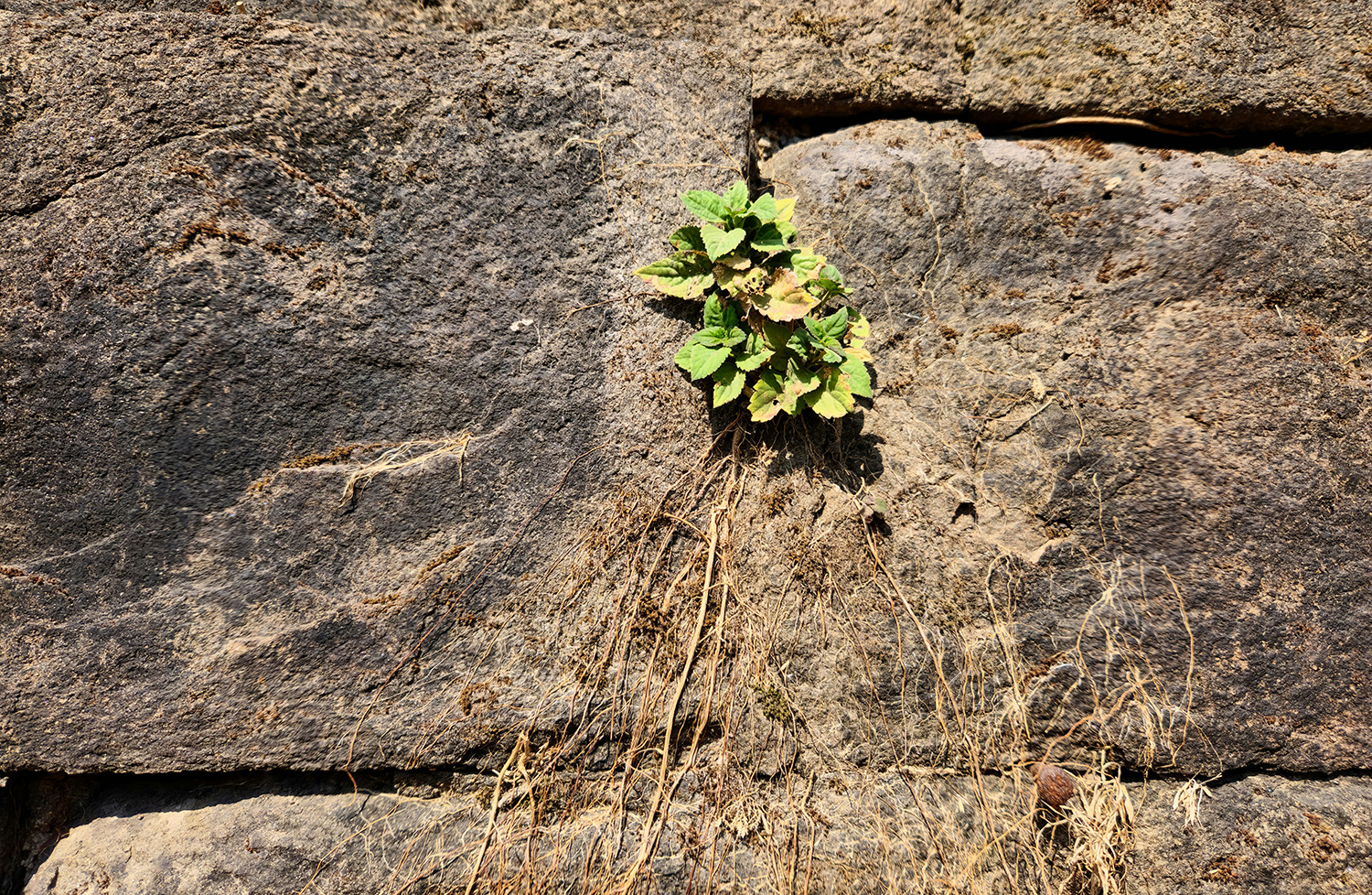Transforming Hard Dirt into Rich, Thriving Soil

Written by Signe Berg, 07/21/2024
Sometimes dirt is so hard you need a pickaxe to get through it. It can be hard as a rock, seem to suck the water out of your skin when touched, and turn to dust that stings your eyes. This was the situation in my own yard a few years ago. But incredibly, that same dirt can transform into rich, dark soil. It just takes time and energy.
To create this thriving soil there are three aspects we want to amend or change: aeration, moisture, and the soil’s inhabitants.
- Aeration is how much air is in the soil. Aerated soil is fluffy. It’s so soft you can often dig it up with your hands. Soil that is aerated should be easy to dig and springy when you walk on it. Soil that is compacted will not support as much life. Aeration is a process that often involves breaking up the compacted soil. In nature this is often done by sand and plant roots, but other things can do it, too. At Greener Ways this is one of the reasons we use mulch; it breaks up the heavy clay.
- Moisture is how much water is in the soil. Plants will need various amounts of water, but most plants want loamy soil. It’s a mix of roughly one third sand, one third silt, and a bit less than a third of clay. It retains water well, but also drains enough to not drown your plants. Water can’t easily soak into soil if it’s compacted, so soil should be aerated first.
- Inhabitants are the third aspect of soil health. Think of them like people moving into a house. They can’t live in soil that isn’t suitable for them, for example if it has no water or food. But once they’re living in the soil, they help maintain it. Plants are one of the inhabitants, but many others live beside them. Decomposers are a crucial part of soil health, as they recycle nutrients and break down dead stuff. They include microorganisms, fungi, and small creatures. The mulch we use at Greener Ways around fruit trees supports decomposers who break it down and make its nutrients accessible for the fruit trees. As a result we don’t need synthetic fertilizers in our garden.
Avoiding synthetic fertilizers and working with natural processes (like decomposers) is working by permaculture principles, Most sustainable gardens are built on this foundation of regenerating the soil by working with nature.
Working by permaculture principles to create a regenerative system will mean your soil stays rich and better supports the plants living in it. Unlike the compacted, dusty, dry stuff that was first in our yard, our garden’s soil at Greener Ways smells earthy and the plants love it. They are part of an interconnected, interdependent system supported by natural processes and people.